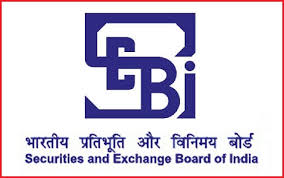 Amid SEBI banning as many as 239 entities for alleged money laundering, taxation consultancy PwC has called for a three-year locking-in for the entire pre-listing capital held by promoters to curb tax evasion and other illegal activities through market platforms.
Amid SEBI banning as many as 239 entities for alleged money laundering, taxation consultancy PwC has called for a three-year locking-in for the entire pre-listing capital held by promoters to curb tax evasion and other illegal activities through market platforms.
The agency has called for imposing a similar lock-in even for preferential allotments, as prescribed under the capital and disclosure requirement (ICDR) norms so that only serious investors access the market. The PwC report is part of a BSE-mandated review of SME listing process.
The premier bourse last week said that 100 entities were trading on its SME platform. The regulator Securities and Exchange Board (SEBI) on June 29 banned four publicly traded SMEs and 235 other related entities for alledgely misusing the exchange’s platform for money laundering and tax evasion.
The SEBI, in an interim order alleged that these entities made Rs 614 crore in illegal gains through suspected money laundering and tax evasion activities. The four companies banned are EcoFriendly Food Processing Park, Esteem Bio Organic Food Processing, Channel Nine Entertainment and HPC Biosciences. These are traded on the BSE SME Platform.
“The institutional trading platform (ITP) could be utilised as a tool for tax planning by staying invested in an SME for a period more than 12 months and exiting at a very high stock price thereby making huge gains with no tax liability,” PwC said in the report.
Accordingly, the report has suggested that the entire pre-listing capital held by promoters should be locked in for three years as “such restrictive conditions would discourage people from accessing the platform only for tax planning”. The BSE had launched ITP for its SME platform to facilitate start-ups and other SMEs to list without the mandatory IPO process which is time-consuming and capital intensive that small companies can hardly afford.
According to PTI, in addition to allowing SMEs and start-up companies to raise capital, the BSE SME platrfom also provides easier entry and exit options for informed investors like angel investors, venture capitalists and private equity players, apart from offering better visibility and wider investor base and tax benefits to long-term investors.
Meanwhile, the report also called for a reduction in trading lot size and shorter interval for review of lot size after many SMEs, merchant bankers and market-makers cited this as a disincentive for entering the market. The report said market participants want the timeframe to review the lot size to be reduced from the current six months and lower the trading lot requirement of Rs 1 lakh to attract retail investors to the segment.
As SEBI continues to make business easier, it is important SMEs do not eye illegal gains through suspected money laundering and tax evasion activities.

